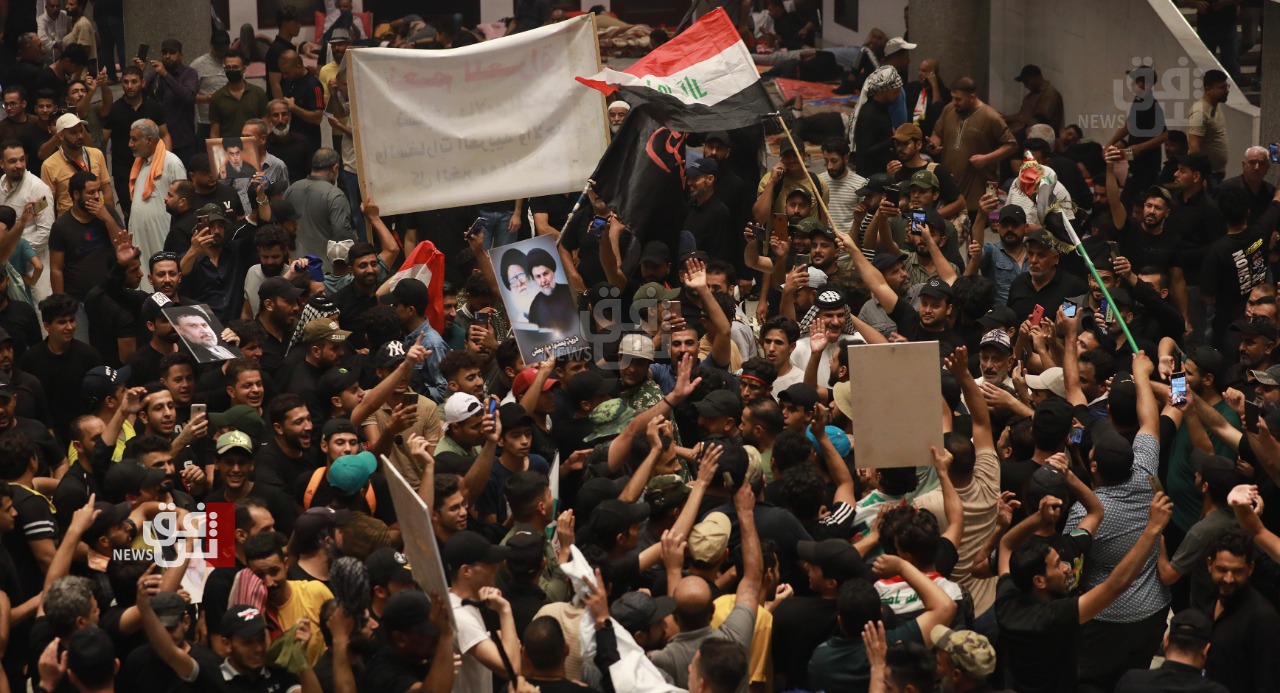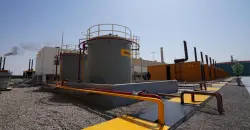What's behind Iraq's explosive political crisis?

Shafaq News/ Iraq is in the midst of its worst and longest political crisis in years. At the center of this overheating conflict stands Iraqi political kingmaker Moqtada al-Sadr and a rival bloc of parties with strong ties to neighboring Iran.
In a show of strength, supporters of Shiite cleric Sadr last week twice stormed Baghdad's heavily fortified Green Zone -- which houses government buildings and Western embassies -- and on Sunday staged a long sit-in inside parliament.
While Sadr's supporters are rallying against the nomination of a new prime minister, these protests also represent a deep political rift festering between Iraq's rival Shiite blocs and the influential hand that analysts say Iran is playing from afar.
"Iran will be a party in this conflict," said Ihsan Al-Shammari, a politics professor at Baghdad University and head of the Iraqi Centre for Political Thought.
"And Sadr is aware that Iran could be what pushes the Coordination Framework to try to inflate its influence in the political scene in Iraq," he added.
A Shiite bloc that is aligned with Iran and opposed to Sadr, the Coordination Framework includes politicians with ties to Tehran, including former prime minister Nouri al-Maliki. It also includes paramilitary groups that are heavily armed by Iran.
The latest turmoil follows nine months of political deadlock, bickering and accusations that have hindered the formation of a government after Sadr emerged as the biggest winner in October's parliamentary election.
Sadr's win threatened to sideline the Iran-aligned Shiite blocs that have dominated Iraqi politics for decades.
In what was described as a 'tectonic shift' in Iraqi politics, Sadr in June asked his political bloc to resign from parliament after failing to cooperate with opposing blocs. The move showed Sadr's true power: his ability to mobilize supporters on the streets in large numbers and with great force.
In a potentially escalatory move, the Coordination Framework on Sunday called for protesters to also take to the streets on Monday.
"Iraq's political system is on the brink of irreparable collapse and the country is headed toward a civil war between Sadr and his Iran-aligned rivals," said Ranj Alaaldin, nonresident fellow in the Foreign Policy program at the Brookings Institution, a think tank in Washington, DC.
Speaking at a weekly press conference, Iranian foreign ministry spokesman Nasser Kanaani said that the situation in Iraq was caused by internal political disputes, reported the state news agency IRNA on Monday. Kanaani's comments seemed to dismiss the speculation around Tehran's role in Baghdad's current crisis.
While some experts say that the current political stalemate is deeply entrenched in the level of influence Iran has over its neighbor, others do not believe Iran drives the conflict.
"I think the motives for this conflict are primarily internal and not the divisions about Iran," said Mohammed Shummary, chairman of Sumeria Foundation in Baghdad.
"There are transformations taking place within Iraqi politics and rising ambitions from different parties who wish to consolidate power," Shummary said, adding that accusations of links with Iran have become a tool -- primarily used by non-Iran-aligned blocs -- to discredit their rivals.
While Sadr has for years positioned himself against both Iran and the United States, the popular cleric has not always held a consistent position toward Tehran.
Once a fugitive from US forces that sought to arrest him in Iraq, Sadr was believed to have been hiding in Iran from 2007. He returned to Iraq in 2011 after striking a deal with the Iraqi government in power at the time.
When protesters first stormed parliament on Wednesday, they were denouncing the nomination of Mohammed Shiya al-Sudani for prime minister -- a figure put forth by the Coordination Framework and who many see as an ally of Iran-aligned Maliki.
But the real problems go far beyond al-Sudani's nomination, says Al-Shammari, who added that discontent is primarily centered around what is perceived as Iran-aligned Shiite blocs' attempts to isolate Sadr and exclude him from politics.
In a statement on Twitter, Sadr called on politicians to listen to protesters' demands, saying there is now a "golden opportunity to end corruption and injustice."
Sadr warned if the protesters' demands are not met, then he is not to blame for the chaos that follows.
"The current revolution is Sadrist," he wrote on Twitter. "If you miss this opportunity, do not blame me."
Despite efforts to cool off the tensions, Alaaldin believes that it will be difficult to see Sadr retreating "unless he is given the government he initially wanted."
"This remains the longest political deadlock [in Iraq] since 2003," said Al-Shammari, adding that even if it is resolved, it is unlikely to be the last crisis to face the oil-rich country.
"The political system faces great paralysis," he said, warning that "reaching a moment of collision would indicate that this rift has reached unprecedented levels."
Source: CNN





